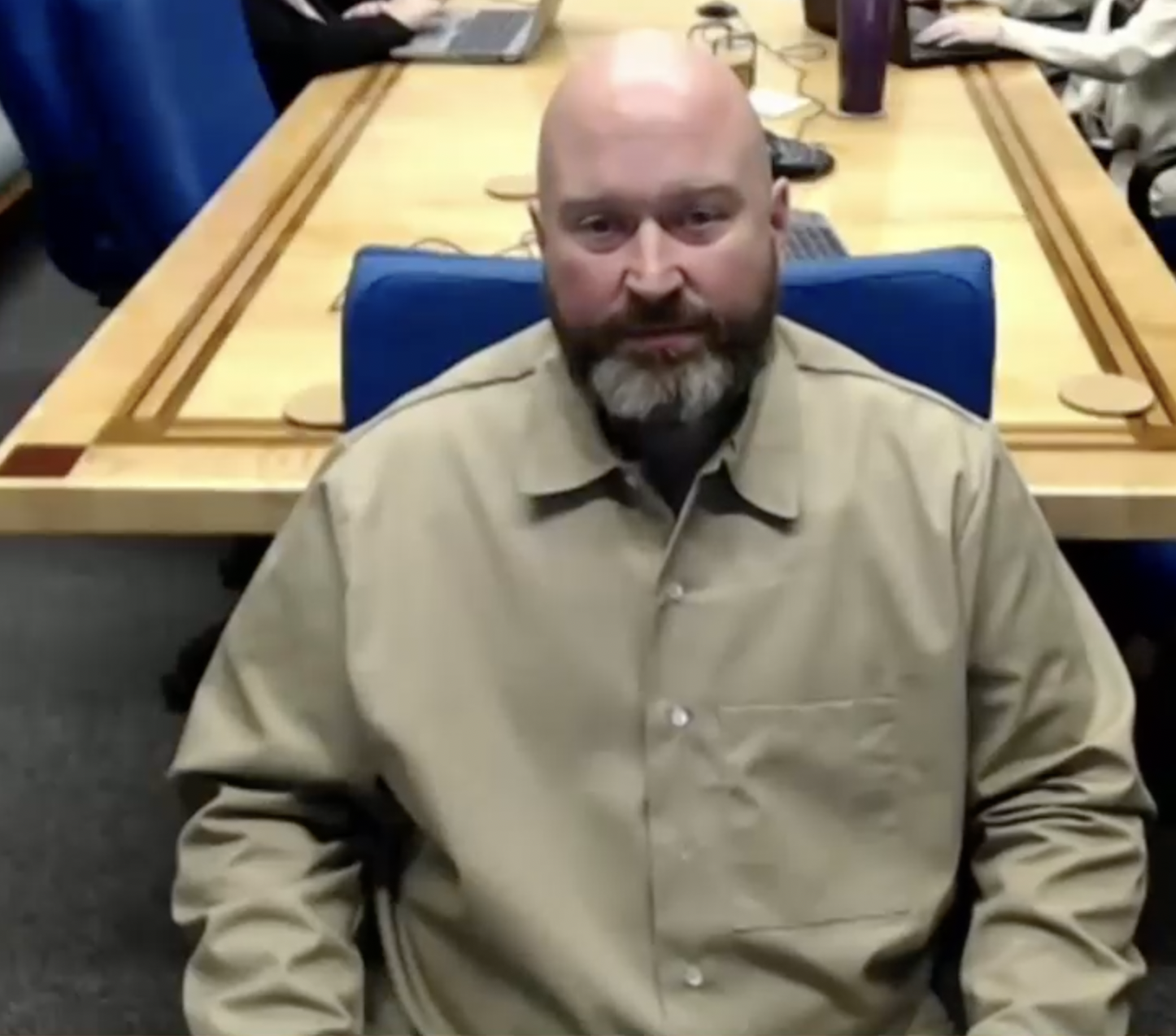The 2023 legislative session has begun in most states. My husband, Jacob Schmitt, drafted a bill to correct an injustice for a handful of Washington state prisoners, providing public testimony on January 23, 2023. I received the below note through Washington DOC’s prisoner messaging system, Securus (formerly Jpay), from a friend of Jacob’s after the hearing:
“I did want to share something with you about the Monday that Jacob testified on his bill. When he walked back onto the unit, after many of these guys had watched on TV, he came in and was mauled like a celebrity. These guys weren’t just inmates, they were “fans” and Jacob was very, very humbled and subdued in the energy of the moment. I was so proud of him and for him. I didn’t see what happened on TV because I was at work, but I witnessed the aftermath and I’m telling you, as his loved one, you would have been in awe of his moment. Be so proud of his stand on that day, the way these guys were when witnessing, and I wish you could have been here for his moment after. People don’t often get moments like that in life that make them feel that way. And if all goes as he hopes, encourage more of those moments in the flesh, after he’s released. He did good!”
People who are not justice-involved, might not realize that prisoners are supportive of each other, and celebrate whenever justice is served, whether or not it applies to themselves. I am here to tell you, they are.
A little background. In 2019, the Washington State Legislature removed rob 2 as a most serious offense (prospectively), eliminating the mandatory life in prison sentence for a rob 2 (non-violent) conviction. In 2021, the legislature went a step further, removing rob 2 from the strike list retroactively. ESB 5164 was sponsored by Senators Darneille, Hasegawa, Kuderer, Liias, Saldana, Wilson C., Solomon, and Das. It has been codified as RCW 9.94A.647. This Bill directed resentencing to standard range sentences for individuals that were sentenced as persistent offenders where a rob 2 was a current or predicate strike.
“The ‘three strikes’ initiative promised to put away the ‘worst of the worst,’ but instead deepened the inequities in our corrections system,” then-Senator Darnielle added in a statement. “The resulting mass incarceration disproportionately impacted and severely damaged communities of color. Today, with this legislation, we continue the work of reorienting our system toward its fundamental intent: Justice.” Of those serving life having been convicted under the three strikes law — 40 percent of them are African-American. (According to the 2020 Census in Washington state, Blacks make up 12.6% of the population.)
As wonderful as this piece of legislation was/is, it tragically overlooked cases where the threat of a persistent offender sentence (predicated on a rob 2 conviction) was used as leverage for individuals to enter plea agreements for lengthy exceptional sentences of 30-40+ years. Both the Senate and House have worked very hard to correct the use of rob 2 as a most serious offense. Those who spared the state the expense of a trial, and victims the experience of testifying at a trial, are left to spend decades longer than they otherwise would have if sentenced without rob 2 as a most serious offense — all while the people who went to trial have been resentenced and released.
HB 1108, if passed, would allow resentencing for the small number of people who plead to exceptional sentences in order to avoid a third strike, and thus a life sentence. This bill is the final step to correct the inclusion of rob 2 as a most serious offense, and is now scheduled for executive session tomorrow, February 2nd.
The only opposition to the passage of this bill, is that the state does not have the resources to identify and resentence these people – not that they should not be resentenced. Testifying in support of the bill, Attorney David Trieweiler rightly pointed out that “We never hear those same folks come in when a proposed increase in sentencing was made, or when we’re creating new crimes … they never came in and said ‘that’s too expensive.’ You only hear that when it’s to undo some of the unjust sentences of the past.”
At least 11 states including Washington have eased their three-strikes laws since 2009, often removing property crimes from strike lists or restoring discretion to judges over previously mandatory life sentences.
In the words of Bryan Stevenson: “We’re talking as if we could put crimes in prison. But what I can tell you from my work is we don’t have the power to put a crime in prison. We can only put a person in prison. And what I want you to know is that people are not crimes. We’ve got to think differently about how we respond to trauma. When someone tells a lie, they are more than just a liar. When someone steals something, they are more than just a thief. Even when someone kills someone they are more than just a killer, and justice requires that we understand the other things they are.”
To follow the progress of HB 1108, sign up here.






0 Comments